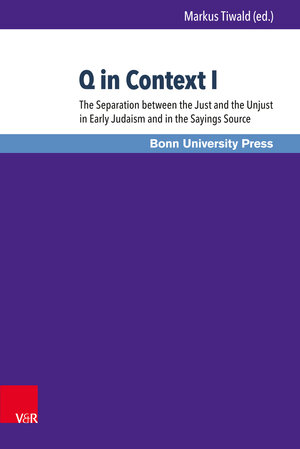Q in Context I
The Separation between the Just and the Unjust in Early Judaism and in the Sayings Source / Die Scheidung zwischen Gerechten und Ungerechten in Frühjudentum und Logienquelle
herausgegeben von Markus TiwaldThe “Parting of the Ways” between Jews and Christians has only recently been extended to the question as to whether the Gospel Source Q still has to be considered “Jewish”. Especially the question of polemics seems to be crucial: Does the polemical language in Q indicate a past rupture between Q-people and Jews? Apocalyptic groups in early Judaism adopted a very polemical language of judgement, exclusion and condemnation of rival Jewish competitors and highlight the conception of the eschatological damnation of a part of Israel. Thus, polemics in Q could also be interpreted as an inner-Jewish struggle for the true apocalyptic interpretation of the Torah rather than as an already completed “Parting of the Ways”.







